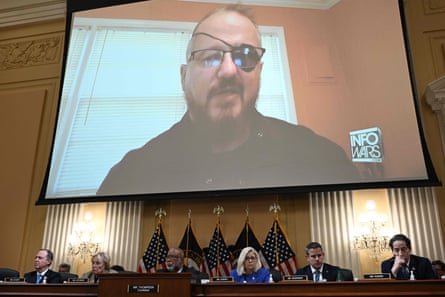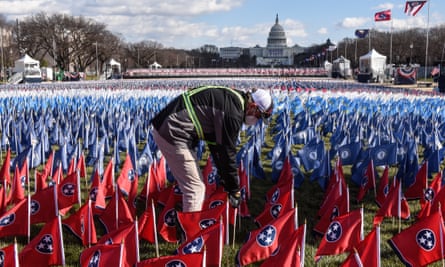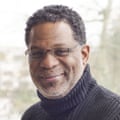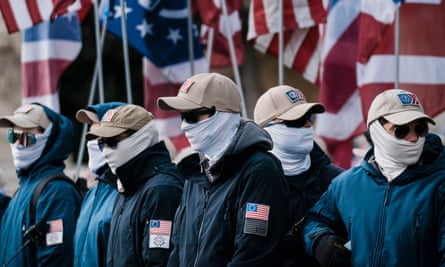Artists demand the reinstatement of the European Drama Award to Caryl Churchill
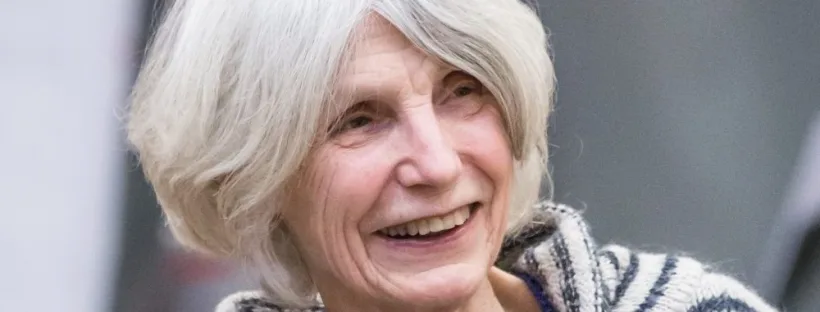
JVL Introduction
It is shocking that the European Drama prize awarded to Caryl Churchill has been withdrawn because of her support for Palestinians, disguised as allegations of antisemitism. Below this letter from Artists for Palestine UK and the long list of signatories are further statements of support; this is from the one from our colleagues in Germany.
This article was originally published by Artists for Palestine UK on Thu 17 Nov 2022. Read the original here.
Leading lights of British theatre accuse European Drama Prize of modern-day McCarthyism
- Lifetime achievement award for Caryl Churchill rescinded over support for Palestinians
- Withdrawal prompts major intervention by more than 170 actors, directors, writers
More than 170 actors, writers and producers have accused the jury of the 2022 European Drama Prize in Germany of “modern-day McCarthyism”, after it withdrew a Lifetime Achievement Award from renowned British playwright Caryl Churchill over her support for Palestinian rights.
The comments come in an open letter (published below) whose signatories include Dame Harriet Walter (Killing Eve, Succession), directors Mike Leigh (Peterloo, Mr Turner, Vera Drake), Stephen Daldry (Billy Elliot, The Crown), Phyllida Lloyd (The Iron Lady, Mamma Mia!), and the National Theatre’s Dominic Cooke CBE.
Churchill was awarded the European Drama Prize in April this year, only for the decision to be rescinded in October based on Churchill’s support for the Palestinian-led Boycott, Divestment, Sanctions (BDS) movement.
“Caryl Churchill deserves the highest international awards for a lifetime of game-changing work in the theatre”, said Dame Harriet Walter. “To withdraw any honour because of her political views is a dishonourable act reminiscent of McCarthyism”.
Pointing to a series of similar attacks on artists and scholars in recent years, the letter states that “this [latest] attack on freedom of conscience… raises urgent questions about a pattern of intimidation and silencing in Germany, and beyond”.
The signatories – who accuse institutions in Germany of “deep-seated anti-Palestinian racism” – also include actors Miranda Richardson, Miriam Margolyes, Khalid Abdallah, Juliet Stevenson, Maxine Peake, and Maureen Beattie as well as leading playwrights Abbie Spallen, Polly Stenham, Hannah Khallil, Nicholas Wright, Sabrina Mahfouz, Tanika Gupta, film director Stephen Frears, and Observer theatre critic Susannah Clapp.
“For the Schauspiel Stuttgart to rescind its prestigious award is irresponsible, illiberal and ignorant; the decision reeks of the very fascism it affects to oppose” said Mike Leigh.
Announcing the withdrawal of the award, the jury also repeated claims that Churchill’s play ‘Seven Jewish Children’ could come across as ‘antisemitic’ – something Churchill rejected, saying “A political play has made political enemies, who attack it with slurs of antisemitism”.
Dominic Cooke, who directed the play in 2009, said: “Drawing attention to Israel’s human rights abuses and its illegal occupation of Palestinian territory is not antisemitic, it is legitimate protest. We must defend artists’ right to comment on it, and on any other abuse of power in the world, without their being subject to defamatory abuse”.
This major new intervention also drew support from Sir Geoffrey Bindman KC, who stated that the withdrawal of the award on the grounds of Churchill’s “support for BDS plainly violates her right to freedom of expression protected by Article 10 of the European Human Rights Convention. It is wrong and the award should be unconditionally restored to her”.
We are proud to publish the letter in full below, with the list of signatories, and full statements by artists and others.
THE LETTER IN FULL
“We are appalled that the Lifetime Achievement Prize awarded to playwright Caryl Churchill for the European Drama Prize 2022 has been rescinded by the jury of the Schauspiel Stuttgart, on the grounds that Churchill supports the nonviolent Boycott, Divestment and Sanctions (BDS) movement against Israel’s system of apartheid.
This outrageous turnaround is the latest in a campaign that targets artists critical of Israel’s colonial violence. It follows attempts to censor figures such as musicians Brian Eno, Kae Tempest, Young Fathers, and Talib Kweli, author Kamila Shamsie, artist Walid Raad, philosopher Achille Mbembe, Palestinian journalist and poet Mohammed el-Kurd, and former director of the Jewish Museum Berlin, Peter Schäfer. This attack on freedom of conscience is nothing less than modern-day McCarthyism, and raises urgent questions about a pattern of intimidation and silencing in Germany, and beyond.
We note that the goals of the Palestinian-led BDS movement – ending the occupation, full equality to the Palestinian citizens of Israel and the right of return of Palestinian refugees – adhere to international law.
Yet, in 2019, a resolution passed by the Bundestag falsely equated the BDS movement with antisemitism. This vaguely-worded and non-binding resolution was rejected by leading international authorities on antisemitism and the history of the Holocaust. In 2020, 32 leading cultural institutions in Germany sounded the alarm at the repression of minority and critical voices, declaring the anti-BDS resolution “dangerous” and “detrimental to the democratic public sphere”. Moreover, seven German courts have found that anti-BDS resolutions and actions taken to implement them violate fundamental rights, including freedom of speech.
The repression and silencing we are witnessing suggest deep seated anti-Palestinian racism, and call into question the integrity and independence of cultural institutions.
Failure to defend artists who speak out in support of human rights – even when this upsets the government of the day – brings the cultural sector into disrepute. We demand better. If the only forms of art deemed ‘safe’ for institutions are those that have nothing to say to the dispossessed and oppressed of this earth and that are silent in the face of state-sanctioned repression, then art and culture are emptied of meaning and value.
In recent days, Caryl Churchill has said: “I stand by my support for BDS and Palestinians.” We, too, stand by the Palestinian people. And we are proud to stand by Caryl Churchill and against McCarthyism.”
Signed by:
Khalid Abdallah, Actor
Hassan Abdulrazzak, Playwright

Seven Jewish Children – A Play for Gaza by Caryl Churchill
Sarona Abuaker, Author
Bette Adriaanse, Writer
Hanan Al-Shaykh, Writer
Monica Ali, Writer
Amir Amirani, Film Director
Almiro Andrade, Actor/Director
Jack Arnold, Film Composer
Sahar Assaf, Artistic Director, Golden Thread Productions
Paul Bailey, Author
Amy Ball, Casting Director
Peter Barnes, Actor
Maureen Beattie, Actor
Sarona Bedwan, Writer
Ronan Bennett, Writer
Sonali Bhattacharyya, Writer
Gurpreet Kaur Bhatti, Playwright/Screenwriter
Geoffrey Bindman KC
Boycott from Within (Israeli citizens for BDS)
Haim Bresheeth-Zabner, Filmmaker
Breyten Breytenbach, Author
Justin Butcher, Playwright
Judith Butler, Professor
Leo Butler, Playwright
Tom Cairns, Director
John Carnegie, Theatre Director
Daragh Carville, Playwright/Screenwriter
Jonathan Chadwick, Writer/Director
Kathleen Chalfant, Actor
Henry Chalfant, Filmmaker/Photographer
Linda S. Chapman, Artistic Director
Jan Chappell, Actor
Mary Chater, Actor
Tanzil Chowdhury, Senior Lecturer
Julie Christie, Actor
Susannah Clapp, Theatre Critic
Dominic Cooke, Director
Gordon Cowell, Casting Director
Liam Cunningham, Actor
Mandy Cuthbert, Actor
Cherien Dabis, Film/TV Director
Stephen Daldry, Director
Siobhan Davies, Dancer/Choreographer
Angela Davis, Author
Dan de la Motte, Equity Councillor/Performer
Andy de la Tour, Actor
Jeremy Deller, Artist
Shane Dempsey, Director
Es Devlin, Artist
Stephen Dillane, Actor
Paola Dionisotti, Actor
Clare Dunne, Actor/Writer
Matthew Dunster, Director
Deborah Eisenberg, Actor/Writer
Inua Ellams, Playwright
Brian Eno, Artist
Darla Eno, Artist
Gareth Evans, Whitechapel Gallery Adjunct Moving Image Curator
Richard Eyre, Director
David Farr, Author
Giovanni Fassina, Director, European Legal Support Centre
Sylvia Finzi, Artist
Joan D. Firestone, Producer
Ruth Fletcher, Reader in Law
Helen Fox, Actor/Writer/Producer
Stephen Frears, Director
Bella Freud, Artist
Ruth Fruchtman, Writer
Pooja Ghai, Artistic Director, Tamasha
Nick Gill, Playwright
John Gillett, Director/Writer
Natasha Gordon, Playwright/Actor
Neve Gordon, Professor
Orlando Gough, Composer
Andre Gregory, Director
Tanika Gupta, Playwright
Omar Hamilton, Writer
Zainab Hasan, Actress
Iris Hefets, Psychoanalyst/Writer
Weiland Hoban, Composer
Jeffrey Horowitz, Founding Artistic Director,
Theatre for a New Audience
Alix Hughes, Trustee, Bristol Palestine Film Festival
Tarek Iskander, Artistic Director, Battersea Arts Centre
Annemarie Jacir, Film Director
Jewish Voice For Peace (USA)
Richard Jones, Director
Jewish Voice for a Just Peace in the Middle East (Germany)
Ann Jungman, Author
Aki Kaurismaki, Film Director
AL Kennedy, Writer
Hannah Khalil, Playwright/Screenwriter
Laleh Khalili, Professor
Cindy Kleine, Director
Peter Kosminsky, Screenwriter/Director
Gavin Kostick, Playwright
David Lan, Writer/Producer
Jacob K. Langford, Director/Writer
Ruth Lass, Actor
Danny Lee Wynter, Actor/Playwright
Mike Leigh, Screenwriter/Director
Daisy Lewis, Actor/Director
Phyllida Lloyd, Director
Jim Loach, Director
Ken Loach, Director
Ruth Luschnat, Naturopath
Hettie Macdonald, Director
Sabrina Mahfouz, Playwright/Poet
Morgan Lloyd Malcolm, Playwright/Screenwriter
Jenny Manson, Co-Chair, Jewish Voice for Labour
Miriam Margolyes, Actor
Kika Markham, Actor
Chloe Massey, Actor
Antony McDonald, Stage Designer/Director
Ellen McLaughlin, Playwright/Actor
Tim McInnerny, Actor
Caitlin McLeod, Director
Pauline Melville, Writer
Patrick Miller, Actor/Writer/Director
Jenny Morgan, TV Director
Carol Morley, Film Director
Tom Morris, Director
Eileen Myles, Poet
Rosalind Nashashibi, Artist
James Nicola, Former Artistic Director, New York Theater Workshop
Ofer Nieman, Translator
Ben Norris, Actor/Writer
Cyril Nri, Actor
Rebecca O’Brien, Producer
Shivaun O’Casey, Actor/Director
Kate Pakenham, Producer
Maatin Patel, Writer
Christine Payne, Equity General Secretary, 2005-20
Maxine Peake, Actor
Phillip Pullman, Writer
Rahul Rao, Academic
Siobhán Redmond, Actor
Miranda Richardson, Actor
Maroussia Richardson, Actor
Ian Rickson, Director
Jacqueline Rose, Professor
Catherine Rottenberg, Professor
Michal Sapir, Musician/Writer
James Schamus, Screenwriter/Producer
Sarah Schulman, Author/Playwright
Stephen Sedley, Lawyer/Former High Court Judge
Lynne Segal, Professor Emerita
Elhum Shakerifar, Producer/Curator
Kamila Shamsie, Writer
Wallace Shawn, Actor/Playwright
Abdul Shayek, Artistic Director, Tara Theatre
Lucy Sheen, Actor/Writer
Farhana Sheikh, Playwright
Christopher Shinn, Playwright
Avi Shlaim, Professor
Shma Koleinu, Alternative Jewish Voices of Aotearoa New Zealand
Gillian Slovo, Playwright/Author
Elaine C. Smith, Actor
Lili Sommerfeld, Musician
Nirit Sommerfeld, Musician
Ahdaf Soueif, Writer
Abbie Spallen, Playwright
Maggie Steed, Actor
Polly Stenham, Playwright
Jamie Stern-Weiner, PhD Researcher
Juliet Stevenson, Actress
Adam Sutcliffe, Professor
Kae Tempest, Musician
Jacques Testard, Publisher, Fitzcarraldo
Ruby Thomas, Writer
Colm Tóibín, Writer
Kathleen Tolan, Actor
Jo Tyabji, Director
Jean Urquhart, Artist
V (formerly Eve Ensler), Playwright
Terry Victor, Actor
Naomi Wallace, Playwright
Harriet Walter, Actor
Stephen Warbeck, Composer
Sacha Wares, Theatre Director
Eliot Weinberger, Writer
Michael Weller, Actor
Hilary Westlake, Director
David Whyte, Professor
Susan Wooldridge, Actor
Nicholas Wright, Playwright/Director
Gary Yershon, Composer
Daniel York Loh, Writer/Director/Actor
STATEMENTS
or





